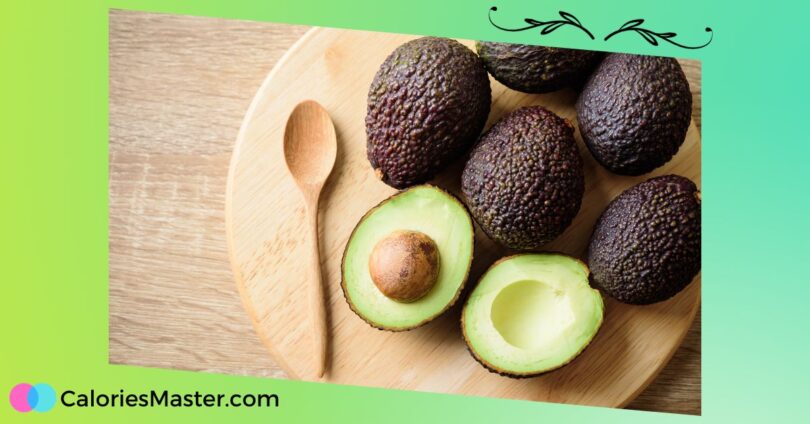Avocado is a popular fruit that has gained widespread popularity among health-conscious individuals in recent years.
Its creamy texture and rich taste make it a versatile ingredient in many recipes, from guacamole to smoothies. However, there is an ongoing debate about whether avocados are considered a fruit or a vegetable.
Botanically speaking, an avocado is a fruit. It is classified as a berry with a single seed, similar to a peach or a plum. Fruits are defined as the mature ovary of a flowering plant, which contains seeds for reproduction.
Avocado trees are part of the flowering plant family, which makes them a fruit. However, in culinary terms, avocados are often treated as a vegetable due to their savoury taste and low sugar content.
The confusion between whether avocados are a fruit or a vegetable is not unique to this particular food item. Many other foods, such as tomatoes and cucumbers, are also classified as fruits according to botanists but are commonly referred to as vegetables in culinary terms.
This discrepancy between botanical and culinary definitions can confuse, especially when it comes to the labelling and regulation of food products.
Are Avocados Considered a Fruit or Vegetable? – Classification of Avocados
Here’s how avocados are classified:
Botanical Perspective
From a botanical perspective, avocados are considered to be a fruit. This is because they are the seed-bearing structure of the avocado tree and are formed from the ovary of the flower.
Avocados are classified as single-seeded berries, with a tough, leathery outer skin and a fleshy inner part that contains the seed.
The avocado tree is a member of the flowering plant family Lauraceae, which includes other well-known plants such as cinnamon, bay leaves, and sassafras. The fruit of the avocado tree is also known as an alligator pear due to its rough, scaly appearance and pear-like shape.
Culinary Usage
Despite being classified as a fruit, avocados are often used in savoury dishes and are considered by many to be a vegetable. Avocados have a mild, nutty flavour and a creamy texture, which makes them a popular ingredient in dips, salads, and sandwiches.
Avocados are also a good source of healthy fats, vitamins, and minerals, making them a popular choice for those looking to maintain a healthy diet. They are high in monounsaturated fats, which are beneficial for heart health and are also a good source of fibre, potassium, and vitamins C, K, and B6.
In conclusion, while avocados are technically classified as a fruit from a botanical perspective, they are often used as a vegetable in culinary applications. Regardless of how they are classified, avocados are a nutritious and versatile ingredient that can be enjoyed in a variety of dishes.
Nutritional Profile of Avocados
Avocados are considered to be a unique fruit due to their high-fat content and creamy texture. They are a good source of healthy fats, fibre, and several essential vitamins and minerals. Here is a breakdown of the nutritional profile of avocados:
Healthy Fats
Avocados are high in monounsaturated and polyunsaturated fats, which are considered to be healthy fats that can help reduce bad cholesterol levels and lower the risk of heart disease. One medium-sized avocado contains around 23 grams of fat, with the majority being monounsaturated fat.
Fibre
Avocados are a good source of dietary fibre, which is important for maintaining a healthy digestive system and promoting feelings of fullness. One medium-sized avocado contains around 13 grams of fibre.
Vitamins and Minerals
Avocados are rich in several essential vitamins and minerals, including:
- Vitamin K: important for blood clotting and bone health
- Vitamin C: important for immune function and skin health
- Potassium: important for regulating blood pressure and heart health
- Folate: important for fetal development during pregnancy
One medium-sized avocado contains around 20% of the recommended daily intake of vitamin K, 17% of the recommended daily intake of vitamin C, 14% of the recommended daily intake of potassium, and 20% of the recommended daily intake of folate.
Overall, avocados are a nutritious fruit that can be a great addition to a healthy diet. However, due to their high fat content, they should be consumed in moderation as part of a balanced diet.
Cultivation and Varieties
Avocado is a fruit that grows on trees, scientifically known as Persea americana. The trees are native to Central America and Mexico, but they are now grown in many parts of the world, including the UK. The avocado tree is an evergreen plant that can grow up to 20 meters tall.
There are many varieties of avocados, each with its unique characteristics. Some of the most common varieties grown in the UK include Hass, Fuerte, and Reed. Hass is the most popular variety and accounts for about 80% of the UK avocado market.
It has dark, rough skin and a creamy texture, making it ideal for guacamole and other dips. Fuerte, on the other hand, has smooth, green skin and a buttery texture. It is often used in salads and sandwiches. Reed is a larger variety that has smooth, green skin and a nutty flavour.
Avocado trees require warm temperatures to grow, and they are sensitive to frost. They also need well-draining soil and plenty of water. The trees can take up to 10 years to start producing fruit, but once they do, they can yield up to 200 fruits per year.
Avocado fruits are harvested when they are mature but still firm. They will ripen after they are picked, and they can be stored at room temperature until they are ready to eat.
In the UK, most avocados are imported from countries such as Peru, South Africa, and Chile. However, there are some small-scale avocado growers in the UK, particularly in Cornwall and Devon.
These growers produce avocados in greenhouses, which allows them to control the temperature and humidity levels. The UK-grown avocados are smaller than the imported ones, but they have a unique flavour and texture.









